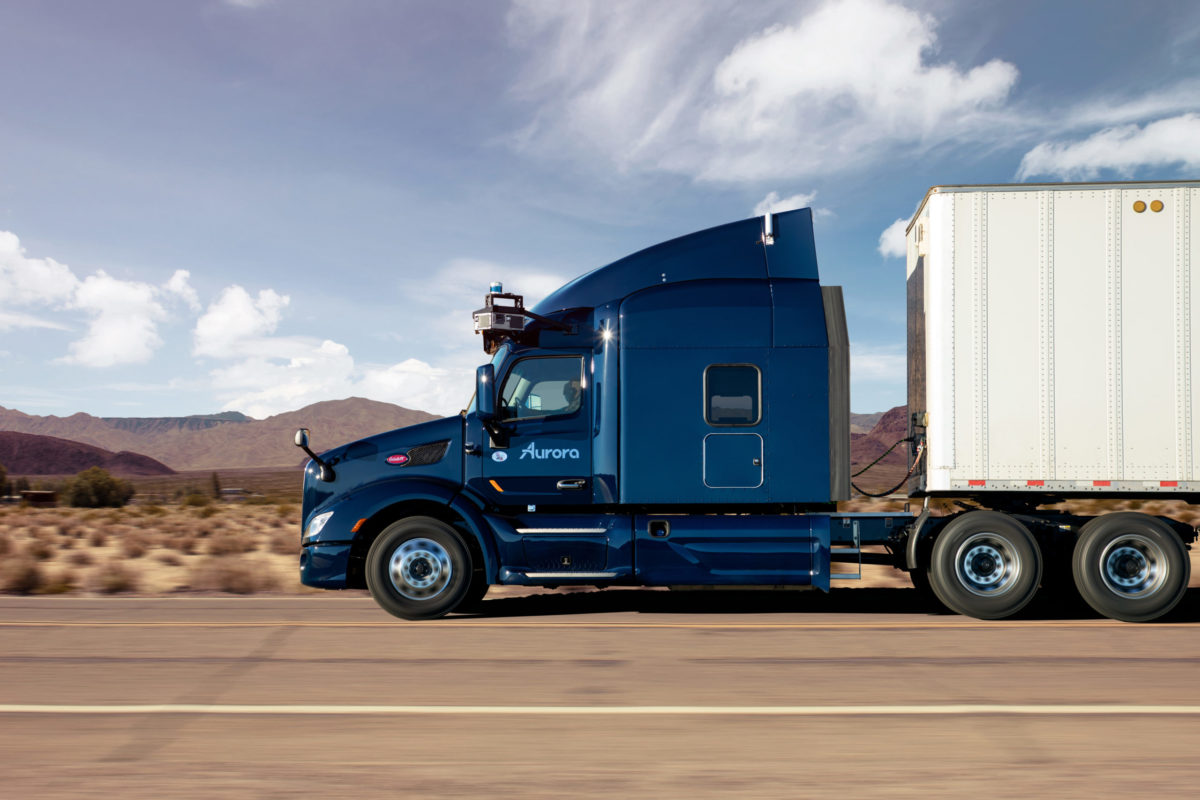As the autonomous vehicle industry rapidly advances its rollout, one of Pittsburgh’s companies will launch one of the first commercial programs for self-driving trucks.
This week, autonomous vehicle company Aurora announced the launch of a new pilot trucking program with FedEx and PACCAR for shipments between Dallas and Houston.
This new initiative follows a series of recent company news, including making Pittsburgh its sole headquarters in advance of a merger with special purpose acquisition company Reinvent Technology Partners Y, which will take Aurora public. The company currently has an implied valuation of $13 billion, made up of merger cash, private investments and its existing $10 billion valuation after acquiring Uber‘s self-driving unit at the end of last year.
The autonomous trucks in the pilot program will be PACCAR models outfitted with Aurora’s self-driving technology, and will traverse the I-45 corridor between the two Texas cities, covering a 500-mile round trip multiple times a week. The trucks will operate autonomously but will still have a safety driver present.
In a press release announcing the news, Aurora said that it plans to eliminate the need for the safety driver and have trucks operating fully autonomously between destinations by the end of 2023.
“The foundation for commercializing self-driving trucks at scale lies in partnership with industry leaders,” said Sterling Anderson, Aurora’s cofounder and CPO, in a prepared statement. “PACCAR and FedEx are two of those leaders and we’re proud to be working with them to deliver on this important mission.”
Aurora’s move comes at a time when big shipment companies are looking to faster and safer delivery options. Amazon purchased 1,000 self-driving trucks earlier this summer, while TuSimple has worked with UPS over the past year to launch its autonomous freight network. The partnership with FedEx in particular puts Aurora in a competitive position as the trucking industry accelerates its push for frequent commercial use over the next few years.
“This is an industry-first collaboration between an autonomous provider, network and manufacturer to commercialize autonomous trucks, and we believe this is the best way to build partnerships that will deliver autonomous vehicles with impact,” an Aurora spokesperson said in an email to Technical.ly.
For FedEx and other shipping companies, that impact can’t come soon enough. The COVID-19 pandemic brought on a vast increase in ecommerce traffic that has led to major delivery delays and overwhelmed distribution systems.
For now, Aurora will limit the pilot program to a small number of trucks between Houston and Dallas, but the spokesperson shared that the company “plan[s] to expand our coverage with FedEx over time, continuing to target the highest-volume routes where the Aurora Driver can make the most impact.”
Those routes will most likely be in the American Southwest, as they have higher freight volumes, mild weather patterns and a large amount of 500 mile or more long-haul delivery pathways.
Beyond this new commercial deployment of its technology, Aurora continues to develop its flagship product, the Aurora Driver, by the end of 2023. Continued developments on both fronts will undoubtedly attract both money and talent to Pittsburgh, where a majority of Aurora’s 1,600 employees are located. The forthcoming merger that will take the company public is expected in the fourth quarter, and figures to generate wealth for the Pittsburgh tech community.







